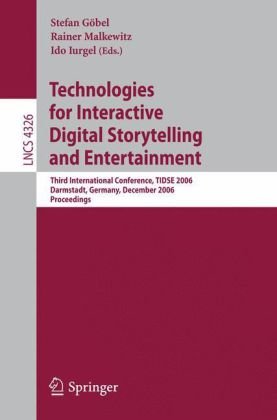

Most ebook files are in PDF format, so you can easily read them using various software such as Foxit Reader or directly on the Google Chrome browser.
Some ebook files are released by publishers in other formats such as .awz, .mobi, .epub, .fb2, etc. You may need to install specific software to read these formats on mobile/PC, such as Calibre.
Please read the tutorial at this link: https://ebookbell.com/faq
We offer FREE conversion to the popular formats you request; however, this may take some time. Therefore, right after payment, please email us, and we will try to provide the service as quickly as possible.
For some exceptional file formats or broken links (if any), please refrain from opening any disputes. Instead, email us first, and we will try to assist within a maximum of 6 hours.
EbookBell Team

4.4
42 reviewsThis textbook contains the proceedings from the 3rd International Conference on Technologies for Interactive Digital Storytelling and Entertainment (TIDSE 2006). The contributions are grouped into six sections, which include subjects like virtual characters, story authoring, narrative systems, and examples of their application. During recent years, Interactive Digital Storytelling has evolved as a prospering - search topic, banding together formerly disjoined disciplines stemming from the arts and humanities as well as computer science. The subject of this book is of course strongly related to the notion of ‘storytelling’, which has been used as an effective means for the communication of knowledge and social values, ever since the early history of humankind. It also tries to build a bridge between current academic trends, for example, by investigating and formalizing narrative aspects of computer games, and by its developments for the experience-based design of human–media interaction in general. Starting with a scientific workshop at national level in 2000, the Digital Sto- telling group at ZGDV Darmstadt originated TIDSE, the International Conference for Technologies in Interactive Digital Storytelling and Entertainment. TIDSE 2003, TIDSE 2004, and TIDSE 2006 continued this series, and provided the latest research outcomes and indications for its usage within entertainment applications.